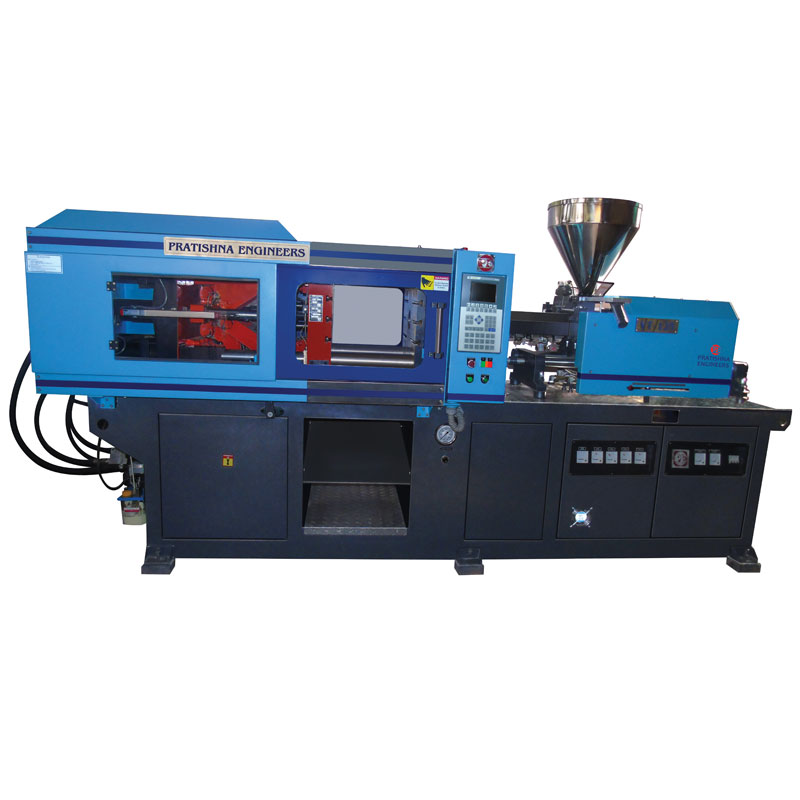Automatic injection moulding machines have transformed manufacturing processes by enabling high-volume production with consistent quality, minimal waste, and exceptional efficiency. These machines are essential in industries such as automotive, medical devices, packaging, and electronics, providing unparalleled advantages in producing large quantities of identical parts. In this blog, we will explore why automatic injection moulding machines are ideal for mass production, their features, and their contribution to modern manufacturing.
Key Advantages of Automatic Injection Moulding Machines
- High Efficiency in Production
Automatic injection moulding machines operate with precision and speed, significantly reducing production cycles. Once the mould is designed and set, the entire process—from injecting molten material to cooling and ejecting—is automated, enabling rapid production of parts.
- Fast Production Cycles: These machines can produce thousands of parts in a short time, ensuring manufacturers meet high-demand schedules.
- Minimal Downtime: Automated systems reduce manual interventions, allowing for continuous operation with minimal interruptions.
- Consistent Quality and Repeatability
One of the most critical factors in mass production is maintaining consistent quality across all units. Automatic injection moulding machines achieve this by precisely controlling parameters like temperature, pressure, and injection speed.
- Precise Moulding: Ensures each part matches the exact specifications.
- Repeatability: Guarantees uniformity, which is vital for industries like medical devices and automotive components.
- Material Versatility
Automatic injection moulding machines can process a wide range of materials, from thermoplastics to advanced engineering plastics. This versatility allows manufacturers to customize products based on specific requirements.
- Biodegradable and Recyclable Options: Encourages sustainable manufacturing practices.
- High-Performance Plastics: Enables production of durable, high-strength components for demanding applications.
- Cost-Effective for Large Volumes
While the initial investment in these machines and moulds is high, the per-unit cost decreases significantly with higher production volumes. This makes automatic injection moulding the most economical choice for mass production.
- Reduced Labor Costs: Automation minimizes the need for manual handling.
- Waste Reduction: Excess material can be recycled and reused, lowering overall material costs.
- Complex and Intricate Designs
Injection moulding is unmatched in its ability to produce intricate and detailed designs. Advanced moulding techniques, such as multi-cavity and multi-material moulding, allow for greater design flexibility.
- High Precision: Supports the creation of detailed features and complex geometries.
- Secondary Operations Eliminated: Reduces the need for post-production processes like finishing or assembly.
Applications of Automatic Injection Moulding Machines
- Automotive Industry
- Manufacturing of dashboard components, connectors, and lightweight structural parts.
- High precision ensures safety-critical parts meet stringent standards.
- Medical Devices
- Production of syringes, surgical tools, and other biocompatible components.
- Ensures sterility and compliance with medical-grade standards.
- Consumer Electronics
- Casings for devices like smartphones and laptops.
- Supports production of intricate parts such as connectors and circuit housings.
- Packaging Industry
- High-speed production of caps, closures, and containers.
- Customizable designs for branding and functionality.
Features of Modern Automatic Injection Moulding Machines
- Advanced Automation
- IoT Integration: Real-time monitoring of production processes.
- Robotics: Automated part removal and assembly reduce human error.
- Energy Efficiency
- Servo Motors: Reduce power consumption by up to 60% compared to traditional systems.
- Sustainable Practices: Machines support the use of recycled materials, promoting eco-friendly manufacturing.
- Intelligent Control Systems
- Real-Time Adjustments: Parameters like pressure and cooling time can be adjusted on the go.
- Data-Driven Insights: Advanced systems provide analytics for optimizing performance.
- Compact and Modular Designs
- Smaller footprints allow for easy integration into existing production lines.
- Modular designs facilitate quick setup and scalability.
Challenges and Solutions
While automatic injection moulding machines offer numerous benefits, they also come with challenges:
- High Initial Costs
- Solution: The long-term savings in operational and material costs outweigh the initial investment.
- Skilled Operator Requirement
- Solution: Modern machines feature user-friendly interfaces, reducing the need for specialized training.
- Maintenance Needs
- Solution: Predictive maintenance tools and IoT-enabled monitoring minimize downtime and extend machine lifespan.
Conclusion
Automatic injection moulding machines are the cornerstone of efficient and cost-effective mass production. Their ability to deliver consistent quality, high-speed production, and design versatility makes them indispensable in today’s manufacturing landscape. Whether producing intricate medical devices or durable automotive components, these machines ensure precision, scalability, and sustainability.
For more information on automatic injection moulding machines and their applications, visit Pratishna Engineers or explore their advanced solutions here.

